Warzone Machinations
Warzone Machinations: Unmasking the Exploitation Tactics of Nefarious Actors in Conflict Zones” by James Scott offers a detailed analysis of the various exploitation practices in war-torn areas. The book delves into topics like arms trafficking, drug trade, human trafficking, black market dealings, mercenary activities, exploitation of mineral resources, money laundering, extortion and racketeering, cybercrime, and land grabbing. It reveals the intricate web of illicit activities and their impact on global strife, highlighting the need for strategic responses to these challenges.

Warzone Machinations: Unmasking the Exploitation Tactics of Nefarious Actors in Conflict Zones” by James Scott is a comprehensive exploration of the multifaceted and clandestine exploitation practices in conflict zones. The book meticulously uncovers various forms of exploitation that fuel and profit from war and strife, revealing the complexities of these malevolent activities.
Chapter one discusses arms trafficking, highlighting how this ‘war commerce’ thrives in the chaotic environments of conflict zones, involving a range of actors from state entities to private corporations. The book then explores the drug trade in war-torn areas, emphasizing how it feeds on chaos, undermining governance and societal structures. Human trafficking is examined next, revealing its horrific impact and the psychological and physical chains it imposes on its victims.
The book also delves into the smuggling of scarce goods, showcasing how this black market thrives on volatility and desperation. The phenomenon of mercenaries in conflict zones is explored, revealing how these ‘soldiers for hire’ exacerbate violence and instability. The exploitation of mineral resources like blood diamonds and the devastating intertwining of wealth and warfare is highlighted next.
Further chapters address the art of money laundering in chaotic regions, demonstrating its role in perpetuating cycles of violence and destabilization. The book then examines the Mafia model of extortion and racketeering, depicting its insidious influence in conflict zones. Cybercrime’s role in modern warfare is also explored, revealing its capacity to disrupt and exploit digital infrastructures.
The book concludes with an examination of land grabbing, uncovering its role in deepening socioeconomic disparities and perpetuating conflict. Across these topics, “Warzone Machinations” provides a sobering yet enlightening view of the dark underbelly of conflict zones, stressing the urgent need for comprehensive and strategic responses to these daunting challenges.
Table of Contents
Chapter 1
Chapter 2
Chapter 3
Chapter 4
Chapter 5
Chapter 6
Chapter 7
Chapter 8
Chapter 9
Chapter 10
Chapter 11
Chapter 12
Chapter 13
Chapter 14
Chapter 15
Chapter 16
Chapter 17
Chapter 18
Chapter 19
Chapter 20
Chapter 21
Q&A with the Author
How did you come up with the concept of "war profiteers" and what inspired you to delve into the exploration of their nefarious activities?
Concept of “War Profiteers”: The concept of “war profiteers” emerged from studying the interplay between conflict, economics, and ethics. It involves individuals or entities that gain financially from warfare by supplying arms and exploiting post-war reconstruction. Historical examples like the profiteering in World War II and the Iraq War inspired this concept, showcasing how conflicts present opportunities for significant financial gain at the cost of ethics and human suffering.
In your ebook, you highlight the exploitation of reconstruction contracts in post-conflict zones. What specific cases or examples influenced your portrayal of this aspect of war profiteering?
Exploitation in Post-Conflict Reconstruction: In the eBook, I highlighted the exploitation of reconstruction contracts in post-conflict zones through cases like Iraq and Afghanistan. These situations were rife with corruption and inefficiencies, leading to inadequate infrastructure and failing to meet the needs of local populations. These examples underscore how war profiteering extends beyond the battlefield, aggravating the suffering of those in affected regions.
Your ebook emphasizes the importance of international cooperation to counteract war profiteering. Are there historical or contemporary examples where such collaboration has been successful, and how can it be strengthened further?
International Cooperation against War Profiteering: Historical examples of effective international cooperation against war profiteering include post-World War II collaborations, like the establishment of the United Nations and international treaties regulating arms sales. In contemporary times, international sanctions and joint operations against illegal arms trades are notable. Enhancing international legal frameworks, improving intelligence sharing, and promoting a culture of transparency can strengthen this cooperation further.
The strategies proposed in your ebook, such as comprehensive regulatory frameworks and enhanced transparency, sound compelling. Have you come across any real-world instances where these strategies have been effectively implemented, leading to positive outcomes?
Effective Implementation of Regulatory Strategies: Real-world examples of effective regulatory frameworks and transparency include the Arms Trade Treaty (ATT) and national regulations controlling arms flows. Public disclosure of defense contracts and international oversight are transparency initiatives that have shown effectiveness in some regions, though they are not consistently implemented worldwide.
The struggle against the exploitation of human suffering for personal gain is a central theme in your ebook. Can you share personal experiences or anecdotes that influenced your perspective on this ethical struggle?
Ethical Struggle Against Exploitation: Personal experiences with conflict victims and conversations with aid workers influenced the theme of the ethical struggle against exploiting human suffering. These interactions highlighted the direct human cost of war profiteering and underscored the moral imperative to combat such practices.
In your opinion, how can public awareness and understanding of war profiteering contribute to fostering greater accountability and driving the necessary reforms?
Role of Public Awareness: Public awareness and understanding of war profiteering can lead to greater accountability and drive necessary reforms. Educating the public on the realities and impacts of war profiteering, along with the ethical issues involved, can create public pressure for policy changes and ethical business practices. An informed and engaged public is essential for building a global consensus against exploiting war and human suffering for financial gain.

